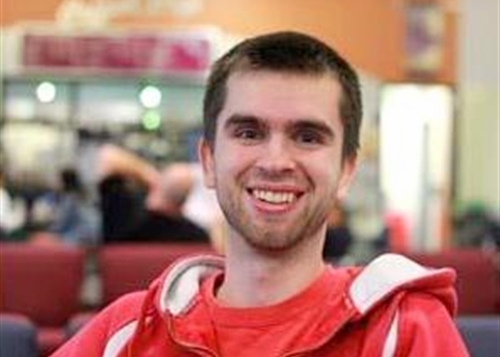Ross Benes, a journalist who worked in Detroit for the last six months, asks a familiar question at the start of an article he wrote for a national news site:
What practical steps can the city take to revive itself?
Slate readers see his unconventional answer in the headline: Build a Gay Neighborhood.

Curtis Lipscomb founded KICK, an advocacy nonprofit in the New Center area. (Facebook photo)
Benes quotes two outside experts and two Detroiters -- Midtown entrepreneur Joe Posch (owner of Hugh) and Curtis Lipscomb, executive director of a New Center nonprofit called KICK.
Although gay neighborhoods usually develop organically, Lipscomb has been meeting with a group of about 10 people from the banking, nonprofit, and community development sectors who want to establish a gay enclave in Detroit. “Detroit has more gay bars than the suburbs, better nightlife, and arts that make it attractive. And depending on the area, it has cheaper rent too,” he said.
The gay neighborhood, which could include retail locations, housing, cultural institutions, places of worship, and gay bars, would likely be developed in Palmer Park, Midtown or downtown Detroit.
Michigan's same-sex marriage ban is a drawback, Benes acknowledges, addding:
But since the ban goes on [federal] trial in February, that could change.
The 24-year-old freelance writer, who this month wrapped up a six-month reporting internship at Crain's, describes the city in a blog post as "full of exciting developments and uncertainty. . . . Anyone who has even an ounce of curiosity would find it a cool place to live."

Ross Benes, a Slate freelancer, earlier called Detroit "a cool place to live." (University of Nebraska photo)
His Slate piece, a mix of interviews on online research, dusts off an 11-year-old article about "The Rise of the Creative Class" on by a pop urbanologist.
Richard Florida argues that cities that lack gays and rock bands are losing the economic development race. He claims that places with a strong creative class and a wide range of professionals are positioned to grow economically. . . . His creativity index includes a “Gay Index,” which measures an area’s openness to different kinds of ideas and people. . . .
Florida has called lesbians and gays the “canaries of the creative economy” for their ability to make areas more desirable by bringing in people and businesses.
Benes' takeaway:
If development leaders like George Jackson are serious about attracting people to the city to combat its dwindling tax base, it would be in their best interest to continue to engage the area’s [lesbian, gay, bisexual, transgemnder] residents in a very public fashion.
Since going online Friday, the article has drawn more than three dozen comments and over 730 Facebook "likes."
Michael Streiffert, a skeptical reader, posted Saturday: "Gay neighborhoods don't evolve in isolation from the rest of the city. If the city doesn't have whatever it is that lets such a neighborhood develop, grafting one on isn't going to work."
A local reader, Norman Witte III, is more supportive in a comment that ends: "Detroit's greater downtown area will always be a welcoming place for the [gay] community, and I think that a gay enclave is something that will inevitably happen eventually."


 by
by








